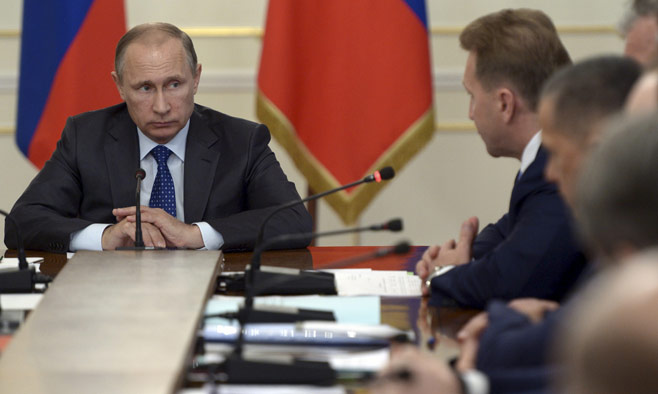
Despite the current tension, the U.S. and Russia remain close. There is cooperation in space, not least the International Space Station. The U.S. regularly hires Russian rockets to launch its crews to the station and to launch satellites. Russia sells advanced rocket engines to the U.S. Russia allows war materiel en route to Afghanistan to pass through its territory on Russian trains.
Russia worked hand in glove with the U.S. to successfully remove large stocks of chemical weapons possessed by Syria. It shares intelligence on Muslim extremists including the Islamic State.
Recently Russia stood side by side with the U.S. and the EU as they forged an agreement with Iran on its nuclear industry. At the United Nations Security Council, Russia and the U.S. voted together for a resolution approving the agreement.
U.S. diplomats are now beginning to concede that Russia’s concerns about far-right groups in Ukraine were well founded, as it becomes increasingly clear that such groups operate outside the control of the Ukrainian government.
When the Russian, French and German foreign ministers hammered out an agreement with the support of Ukraine’s parliamentary opposition for former Ukrainian President Viktor Yanukovych to step down at the next election, the West “forgot” about it in the next few days as they supported the Maidan demonstrators, who drove Yanukovych into exile. The West supported the “democratic revolution” rather than demanding the fulfillment of the agreement. No wonder Putin was livid.
What is needed now in Western capitals is an acknowledgement that they have not always got Russia and Putin right. Today many Western observers believe that the degree of Russia’s intervention in the Donbass in eastern Ukraine is grossly overstated. Not long ago NATO Supreme Allied Commander Philip Breedlove warned that Russia was about to invade Ukraine, an ill-informed viewpoint that was quickly shot down by the head of French intelligence.
NATO’s bombing of Belgrade in 1999 went against international law, and led to an independent Kosovo. Russia voted against this campaign at the UN, arguing that changing a country’s boundaries by force was illegal. If the West had not waged its Kosovo campaign it is probable that Russia would never have annexed Crimea.
Russian paranoia was understandable when the second Chechen war broke out in August 1999. Many powerful Washington insiders ignored the jihadi nature of the Chechen invasion of neighboring Dagestan, focusing only on Russian violations of human rights. Yet today, a number of emirs in the region have declared their loyalty to the Islamic State.
In 2011 Russia abstained on a resolution at the UN Security Council which authorized a Western initiative to use its air forces in order to save civilians from being massacred in Muammar Gaddafi’s Libya. In fact the Western powers went far beyond their UN mandate and fought to bring down Gaddafi. This led to the present chaos in Libya which seems to have no end in sight.
Gordon Hahn, a former senior associate at Washington’s Center for Strategic and International Studies, wrote that “All this demonstrates again the utter futility in expanding NATO into Russia’s sphere of influence. It undermines Western security in two respects. It has alienated Russia and transformed it into the West’s “greatest geopolitical foe.” Second, it runs directly contrary to the requirements of an effective global fight in the war against jihadism, which must include all major powers in a robustly institutionalized alliance.”
Of course Putin on occasion is heavy-handed but it is no surprise that he has overwhelming domestic support in his confrontation with the West. Russia responds to the actions of the West. It is always the West that makes the first move on the chessboard.